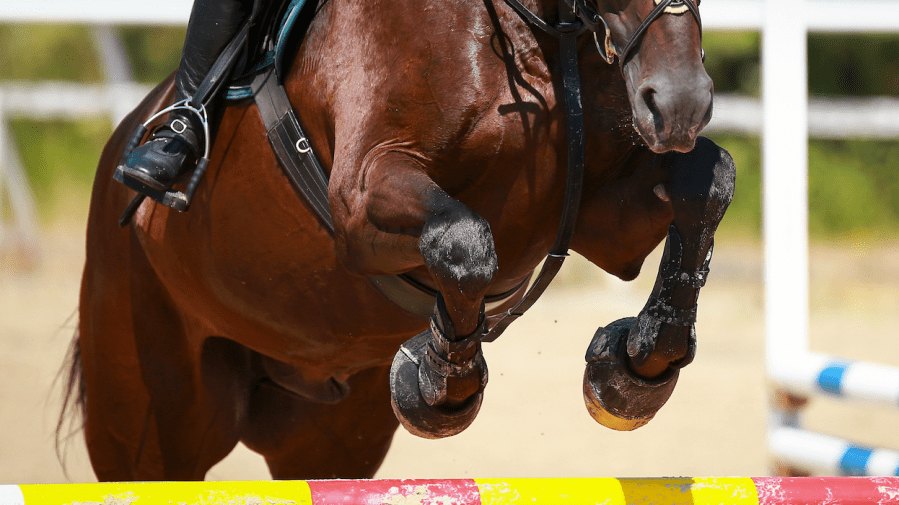The FEI has announced today (Friday 7 November) that the FEI Jumping Rules will be restructured to allow horses to continue competing despite displaying signs of blood provided they are deemed fit to compete following a veterinary inspection.
Your Horse reported earlier this week that the no blood rule was set to be debated at the FEI General Assembly which is taking place in Hong Kong, China from Tuesday 4 – Sunday 7 November.
The current rule, which is designed with the horse’s welfare in mind, states that if there is any sign of blood on a horse in an FEI competition, then the horse is automatically eliminated.
Amendments
The new rule, which was voted in with 96% approval, reads as follows:
- New mandatory fitness-to-compete checks by the Ground Jury, in consultation with the Veterinary Delegate, in all cases of blood.
- Horses now only permitted to continue competing if passed fit-to-compete following the above Veterinary check.
- Clearer rules for FEI Officials, removing the “minor” distinction and ensuring greater consistency and objectivity.
- Increased transparency and accountability for athletes, with all Jumping Recorded Warnings published by the FEI.
- Automatic notification to National Federations of all Jumping Recorded Warnings concerning their athletes, enabling them to better monitor cases and decide whether to impose additional welfare checks or measures.
The rules that are still in place and remain unchanged are:
- mandatory disqualification for excessive use of spurs;
- the Abuse of Horse provisions; and
- the possibility of opening separate disciplinary proceedings to impose additional sanctions.
‘Constructive discussions’
“We fully acknowledge and thank the National Federations for the constructive discussions throughout the week, which clearly reflected a shared commitment to finding solutions,” said Sabrina Ibanez, FEI Secretary General.
“Despite differing opinions, we were able to gain a clearer understanding of each other’s positions and were also able to clarify several misunderstandings and misconceptions.
“We acknowledge that the approval was not unanimous and have taken note of the request from several National Federations for a more harmonised approach to the topic across disciplines and we are committed to looking into this.
“We will take a structured, evidence‑based approach grounded in thorough consultation and driven by data. Our ongoing projects at the FEI will play a key role in supporting accurate data recording, and we will continue to advance safety and welfare through evidence‑based measures that are both rigorous and robust to further demonstrate our unwavering support to horse welfare.
“We acknowledge that a number of National Federations voted against the proposal. While their reasons may vary, we take this outcome seriously and are committed to examining it carefully to better understand the concerns and address them as we move forward.”
‘A devastating message’
Claudia Sanders, a German equestrian journalist who set up a petition calling for the rules surrounding blood on horses in competition to remain strict, confessed to being “deeply disappointed” with the outcome.
“I did not expect the FEI to so completely disregard the needs of the horses,” said Claudia.
“I am deeply disappointed. This decision sends a devastating message: blood is no longer a warning sign, but merely a bureaucratic detail. We cannot and will not accept this – we will not give up the fight to protect the horses. We owe it to them.”
Claudia’s petition, which currently has over 65,000 signatures, will remain open.
The new rule will take effect from 1 January 2026.
Main image © Shutterstock.








